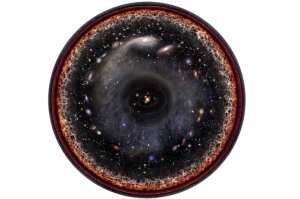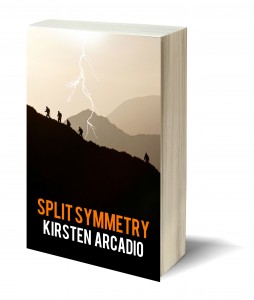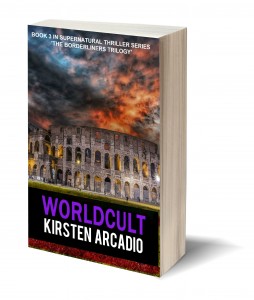 This week a dear uncle of mine died. After his death which came too soon after that of his younger brother less than a year ago, I was reminded yet again of my views on death.
This week a dear uncle of mine died. After his death which came too soon after that of his younger brother less than a year ago, I was reminded yet again of my views on death.
Well, I say my ‘views’. What I really mean is my ‘doubts about’.
For something else happened before either of my uncles died: my mum dreamed of my grandmother. In her dream, Nan (as I called her) was trying to warn her of something. Being a sensible science-biased kind of a person, my mum put it down to her own subconscious telling her that her younger brother was ill. However, she was left with a feeling that this wasn’t all. Shortly after her dream her younger brother was diagnosed with terminal bowel cancer. He died but not long after that her older brother also fell ill.
In the long chain of life her brothers had linked hands and decided not to let go.
One night, not long before my second uncle died, I sat down to watch the film, Interstellar. Expecting the usual Hollywood blockbuster, an action-packed roller coaster to take my mind off things for a while, I was surprised by the emotional blow the film dealt.
It took my breath away.
Granted, there’s a lot wrong with it – like a fair amount of the logic ties itself up in paradoxical knots. But I’m happy to grant it the artistic licence it deserves. The ideas therein were sound, the philosophy perfect. Unsure at the beginning, I then got well and truly hooked at the point where Cooper, Amelia and the crew touch down on a planet beyond a wormhole the other side of our galaxy in order to find fellow scientists who had travelled there a decade before. Given that time does strange things on the other side of the hole in space (yeah, a big given, but I bought it), every second they spend on the planet’s surface costs them many earth years. In short, the longer they spend down there, the more their loved ones back on earth age and the less likely they are to see them again.
A setback occurs and they end up on the planet for an hour, something that costs them decades of earth time.
In the meantime their loved ones, and in particular Cooper’s two children, have aged decades and have left them 22 years’ worth of messages on the comms system. As Cooper sits down to view all his messages, he sees that his kids have grown up, that tragedy has befallen his son’s family, that his daughter – now herself a scientist – is bitter, crippled by her belief that her father is not coming back. That he might be dead, his non-response to her messages no comfort to her year in year out.
This is how we feel when our loved ones die, isn’t it?
Where do they go? Into what strange universe beyond our reach? Do they hear us when we call out to them, as the years trickle by? Are they trying to get a message back? What if they are really there, but the space time their consciousness has moved into so removed from us, the messages they send to us are not what we might imagine? Just as Murph’s ‘ghost’ is really Cooper who finds himself in the ‘Tesseract’ fifth dimension after his travel back through the black hole on his way back to earth.
What is death then, after all? What happens when we die? Do we still exist somewhere, even if it is only in people’s minds? Or do we continue to exist, in another dimension, in another time?
The love between Cooper and his daughter and, to a lesser extent, between Amelia and her lover – another scientist lost in space a decade before – is what drives them to keep hunting for something that will help them understand the universe better, that will help them (and the human race) continue to survive, to prevail. Love and death, so intertwined, one unable to exist without the other but both vying for dominance in this great, dark multi-dimensional world.
The film, Interstellar, is about both. Which wins? I don’t know. And I don’t know the answer in real life either.
In another twist of fate my mum chose a poem to read at my uncle’s funeral. Not a fan of Sci Fi, she hadn’t seen Interstellar. However, can you guess which poem she read?
‘Rage, rage against the dying of the light.’
 A phrase I heard often in the former GDR (German Democratic Republic, aka East Germany) just after the Wall came down in Berlin at the end of 1989 was how great things had been beforehand. Not everything was as the media would have us believe. Yes, there was the STASI (State Security Police) and the regime that prevented East Germans from travelling to the West. Yes, the East German economy wasn’t in great shape (even though it was one of the more efficient economies in the Eastern Bloc). And the East Germans knew their West German cousins – the so-called ‘Wessis’ – were revelling in a wonderland of endless consumer choice. Or so they had heard.
A phrase I heard often in the former GDR (German Democratic Republic, aka East Germany) just after the Wall came down in Berlin at the end of 1989 was how great things had been beforehand. Not everything was as the media would have us believe. Yes, there was the STASI (State Security Police) and the regime that prevented East Germans from travelling to the West. Yes, the East German economy wasn’t in great shape (even though it was one of the more efficient economies in the Eastern Bloc). And the East Germans knew their West German cousins – the so-called ‘Wessis’ – were revelling in a wonderland of endless consumer choice. Or so they had heard.
 And the idea of the eye in itself is a recurring motif in much of what resonates for me. Take the most recent ‘photograph’ released by NASA of the known universe.
And the idea of the eye in itself is a recurring motif in much of what resonates for me. Take the most recent ‘photograph’ released by NASA of the known universe.



